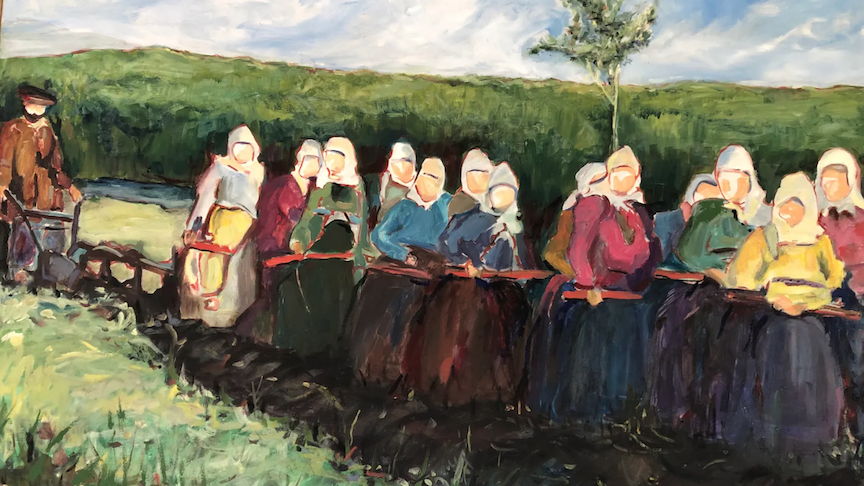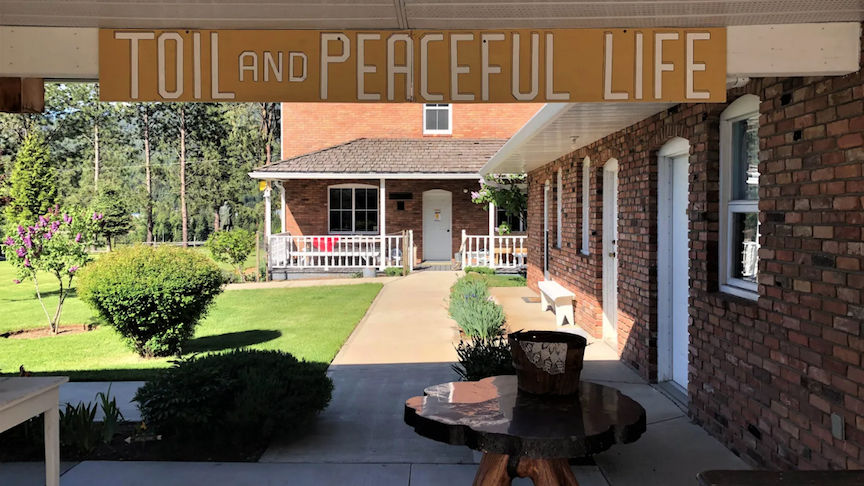The British Broadcasting Corporation has featured Castlegar and its Doukhobor Community in its summer article entitled “Canada’s little-known Russian sect: The fascinating but little-documented story of the Doukhobors, a pacifist religious sect who fled persecution in Russia to undertake one of the largest migrations in Canadian history.” The public service broadcaster, based in London, England, is the oldest and one of the most respected news agencies in the world and its travel series called “Our Unique World,” where this story ran, explores unique subcultures and communities around the globe.
Prolific travel writer Brendan Sainsbury wrote the piece that starts off with him visiting the Doukhobor Discovery Centre and speaking with the museum’s director Ryan Dutchak. The timing is excellent, Dutchak explains during a phone conversation after the article was released, because “the Centre is celebrating its 50th anniversary this year with various travelling exhibits and a borscht cook-off scheduled for late September.” One satellite exhibit can currently be seen at the Trail Museum and archives and will remain there until October.

Ducthack, who’s grandmother was Doukhobor and who did a master’s thesis on the culture, is featured throughout the BBC story as he was the one who toured the writer through the Discovery Centre, which is home to ten historical buildings on ten acres of land, as well as approximately 1,600 donated artifacts. The general public can visit the centre Monday to Friday from 10-5 and Saturday from 10-4 until September 30.
In the article, Sainsbury writes, “The Discovery Centre is essentially a reconstruction of one of their unique self-sufficient communities. Inside, I examined a suite of austere dorms, barns full of old farming implements, a wood-fired oven for making bread and several Rumpelstiltskin-like spinning wheels that were used to make the distinctive tunics and shawls that Doukhobors still wear on special occasions.”

He also describes how the the religious group of Russian origin fled the Czarist government in the late 1800s and, with financial help from Nobel prize-winning novelist Leo Tolstoy, settled in the West. Many found themselves in the Kootenay region in the early 20th Century because of the excellent agrarian opportunities in places such as Castlegar and Grand Forks. He writes about leader Peter Verigin and the mystery of his assassination, the Doukhobor splinter group Sons of Freedom, and how the culture remains relevant today thanks to places like the Doukhobor Discovery Centre, various festivals, foods such as the famous Doukhobor borscht, religious ceremonies, and celebrated a cappella choirs.
For more about the Doukhobor Discovery Centre, visit doukhobor-museum.org and to read Brendan Sainsbury’s BBC article in its entirety, visit bbc.com/travel.

